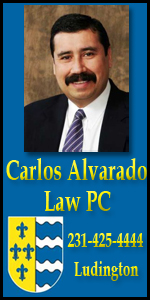The Mitten Memo. A blog by Nick Krieger.
By the reign of King Henry VII, English law recognized the monarch’s exclusive and absolute power to pardon an individual accused or convicted of a crime. Even as other royal powers eroded and shifted to Parliament over the years, this absolute kingly prerogative to dispense mercy survived undiminished and remained exclusively with the Crown.
When the American colonies declared their independence in 1776, the powers of the British Crown and Parliament devolved upon each of the individual 13 states. As the early state constitutions were drafted, the devolved powers of Parliament—such as the authority to make laws, impose taxes, and define crimes and punishments—were universally assigned to the various legislatures. However, the drafters of these early state constitutions were far less consistent in their treatment of the executive pardoning power. Certain American states retained the power of executive clemency and granted it exclusively to the governor. Other states conferred the power to grant pardons upon the legislature. Still other states eliminated the power altogether.
As additional states were organized, they joined the Union on an equal footing and inherited the same sovereign powers that had passed to the original 13 (except those that had been delegated to the federal government by the United States Constitution). Upon its admission in 1837, therefore, the State of Michigan assumed the British Crown’s power of absolute executive clemency.
Michigan’s first state constitution granted the sole power of executive clemency to the Governor, and this has remained substantially unchanged. Today, Article V of the Michigan Constitution gives the governor “power to grant reprieves, commutations and pardons after convictions for all offenses, except cases of impeachment, upon such conditions and limitations as he may direct, subject to procedures and regulations prescribed by law.”
Last week, David Eggert and Ed White of The Associated Press reported that Gov. Rick Snyder had pardoned Oakland County attorney Alan Gocha, Jr. Gocha, who was appointed by Snyder to serve on Michigan’s Talent Investment Board in 2011, was arrested following a traffic stop in 2007 and convicted of drunk driving in 2008.
In the words of Michigan’s Supreme Court, a gubernatorial pardon “releases the punishment and blots out of existence the guilt, so that in the eye of the law the offender is as innocent as if he had never committed the offense.”
News of Gocha’s pardon initially raised many eyebrows—including my own. Shortly after his election, Snyder signed an executive order changing the make-up of the Parole Board, abolishing the Executive Clemency Advisory Council, and implementing more stringent standards for those seeking an executive pardon. Snyder has used the power of executive clemency sparingly to say the least, having granted only 11 pardons in total since taking office in 2011.
Even more disturbing for many observers, it appears that Gocha—a politically connected lawyer who has contributed to conservative political action committees—received preferential treatment that would be utterly unattainable for the average Michigan resident with a drunk-driving conviction. According to statistics maintained by the Michigan State Police, Gocha was one of 49,867 people arrested for drunk or drugged driving in Michigan in 2007. But no other person convicted of drunk driving has been pardoned by a Michigan governor in recent memory.
I suspect that Gocha did receive preferential treatment; at least it looks that way. But all the complaining about Snyder’s decision to pardon Gocha is just more whistling in the wind.
In Michigan, the Governor’s decision to pardon an individual convicted of a crime is unreviewable by the courts or any other institution. While the Legislature may prescribe the manner of applying for a pardon, the ultimate decision to grant or deny clemency is a personal prerogative that the Governor, and no one else, may exercise. Once the Governor has signed the pardon and the Secretary of State has affixed the Great Seal, the act of executive clemency is complete and may not be undone. Consequently, Gocha’s drunk-driving conviction has been wiped away and there is nothing anyone can do about it.
As tempting as it might be to complain that Snyder’s action was unfair—and I admit that I was initially quite disturbed by it—we must remember that our system worked exactly as it was designed. No one violated the constitution. And no one—apart from Gocha—broke the law. The framers of the Michigan Constitution deliberately placed no restrictions on the Governor’s power of executive clemency, choosing to give the Governor the broadest possible discretion in dispensing his mercy. The Governor may grant a pardon for a good reason, a bad reason, or no reason at all. The choice is his alone.
The pardoning power has persisted throughout the centuries because it serves an important purpose. In some cases, it is the only realistic option for the wrongly convicted. In other cases, it may be warranted for individuals who have expressed remorse, undergone treatment, and demonstrated significant rehabilitation. It can also be a crucial check on corrupt prosecutors and judges.
Even if we disagree with the outcome in this particular instance, we should be hesitant to place additional constitutional restrictions on the Governor’s authority to grant pardons going forward. The pardoning power is an important cog in a larger system of checks and balances. Let’s just hope that the Governor uses better personal judgment before exercising his kingly power of executive clemency in the future.
Nick Krieger is a graduate of Ludington High School, earned a bachelor’s degree from Michigan State University, and holds a law degree and master’s degree from Wayne State University Law School. Nick works as an attorney for the Michigan Court of Appeals and owns a home in Ludington. The viewpoints expressed in The Mitten Memo are Nick’s own, and do not reflect the views of the Michigan Court of Appeals or Media Group 31, LLC and its affiliates, Mason County Press, Manistee County Press, Oceana County Press. Contact Nick via e-mail at nickkrieger77@gmail.com or follow him on Twitter at @nckrieger.


































 (1).gif)












.png)






